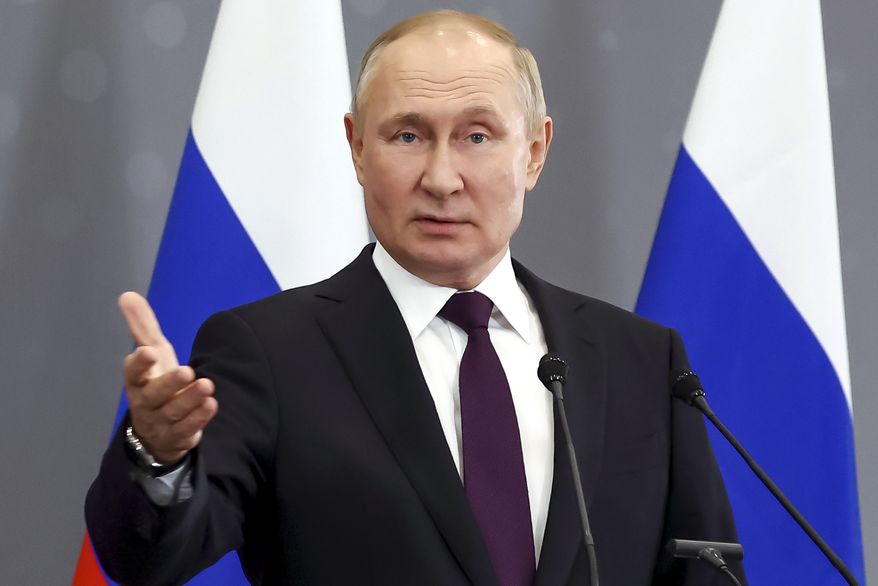SOLVING THE CRISIS IN GLOBAL GOVERNANCE
Political instability is rising, and the citizens of the world are more fearful, with good reason.
Most seek a government that guarantees protection of person and property and ensures civil liberties. At the end of the 20th century, this global goal was thought to be within reach. Much of the world had achieved some form of democratic governance, with the protection of both personal and economic liberties on the rise. Global poverty was falling at a rapid rate, and economic growth and opportunities were rising. Communism and socialism appeared to be headed to the “ash heap of history.”
Russia had become a non-communist, semi-free-market, semi-democracy. The Chinese Communist Party seemed to be evolving toward a more benign and less oppressive collective leadership. The Common Market and the euro seemed to be cementing Europe into a democratic, largely free-market federation. India was becoming more free-market and more democratic. Most Latin American countries looked to be moving away from socialism and toward free markets and democratic rule. Even many African countries seemed to be evolving into free-market democracies. As always, problems remained, particularly in the Middle East, but they too seemed solvable.

Yet a mere two decades later, Russia has a dictator who started a major war in Europe for no good reason and is threatening the world with nuclear weapons. The Chinese are moving away from their collective governance and a time-limited leader with constrained powers to a dictator for life with increased power. The Europeans have created a political and economic mess, much of it caused by totally unrealistic attempts to implement environmental goals and an ever-expansive welfare state, without first considering the consequences of each action.
The U.S. is faced with an unprecedented situation — a president who may be suffering from cognitive impairment and a vice president who may not be up to the task. The American Founders did not contemplate a situation where instant decisions might be necessary or the country destroyed (i.e., nuclear weapons). The assumption was that there would be time for due deliberation before making critical decisions.
America had been lucky with its presidents in critical times, by having intelligent, wise men at the helm, who sought the advice of their very experienced Cabinet members. Presidents George Washington, Abraham Lincoln and Ronald Reagan, for example, surrounded themselves with some of the most knowledgeable and able people. Each of those presidents listened to his advisers but was able to sort out whose arguments made the most sense and then quickly decide on a course of action.
America and most of the other countries are not now so blessed. Centralized power, particularly in one person, almost always leads to disaster. A major reason the British became the world’s greatest power was that they had weak kings, which resulted in forms of collective decision-making, causing Britain to avoid many of the mistakes of other countries. The Magna Carta in 1215 was about taking power from King John and enabling the lesser nobility to have more. By the time of the Glorious Revolution in 1688, about 12% of the population had been enfranchised through Parliament and the courts, enough to keep most of the monarchs from doing really stupid things (George III being an exception).
Many of the continental Europeans kept strong monarchs who most often made major mistakes leading to their abolition (e.g., Louis XVI in France and Czar Nicholas in Russia). The Swedes and other Scandinavians evolved from having elected kings in the Viking age to increasingly powerless hereditary kings and queens, with elected parliaments gaining power in part to act as a brake on unwise actions of the executive branch of government.
The Swiss have developed over the last nine centuries (and particularly since their major constitutional rewrite in 1848) a system most responsive to the needs of the people, including protection of person, property and civil liberties. Most government takes place at the local level (2,172 communes) by democratic consensus. Decisions that cannot be made at the local level are then made at the canton (26 states) level, and the few remaining decisions, such as defense, trade and other treaties, are made at the federal level. At the federal level, there are seven councilors who govern the country as equals with staggered five-year terms and with the principle of collegiality — representing the major political parties. They rotate the title of “president” among them for one-year terms. This system has given the Swiss unparalleled stability and prosperity, and no cult of personality. The collective and forced-tempered decision-making has kept them from doing many of the unwise and destructive things other countries have done.
All know the dangers of having too much power in the hands of one person, as is now evident in Russia. It is also unsettling to see too much power in the hands of an elected democratic leader or a one-party democratically elected majority. President Donald Trump would have been a far better chief executive had some around him like Vice President Mike Pence and Secretary of State Mike Pompeo had the ability to temper some of his statements. The country and the world would be more at ease if President Biden were just one among a few equals who had been selected over a number of years.
The need for a modest modification of our system is now obvious.
• Richard W. Rahn is chairman of the Institute for Global Economic Growth and MCon LLC.
https://www.washingtontimes.com/news/2022/oct/17/the-dangers-of-having-too-much-power-in-the-hands-/
© Copyright 2022 The Washington Times, LLC.